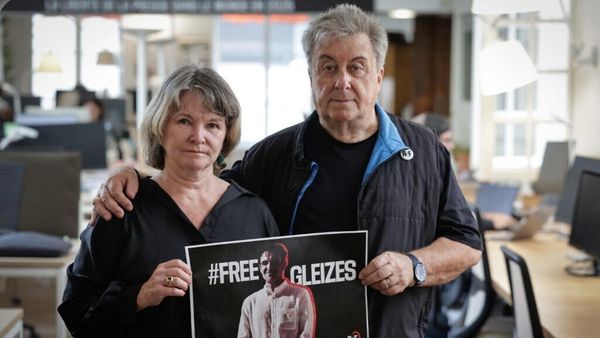
Church of England priests will be permitted to bless the civil marriages of same-sex couples in a profound shift in the church’s stance on homosexuality after a historic vote by its governing body.
The first blessings for gay couples could happen this summer. Individual churches will be encouraged to state clearly whether they will offer blessings to avoid confusion and disappointment.
After an impassioned debate lasting more than eight hours, the C of E’s national assembly, the General Synod, voted by 250 votes to 181 to back a proposal by bishops intended to end years of painful divisions and disagreement over sexuality.
But emotionally charged speeches from those advocating full equality for LGBTQ+ Christians and those arguing that traditional biblical teaching on marriage and sex must be upheld signalled that the debate is set to continue.
The synod also agreed that the church will apologise for the harm it has caused to LGBTQ+ people. It welcomed a forthcoming review of a ban on clergy entering into same-sex civil marriages and a celibacy rule for clergy in same-sex relationships.
Conservatives narrowly succeeded in amending the motion to state that the church’s doctrine of marriage – that it is between a man and a woman – was unchanged. Although progressives were dismayed by the amendment, it may have encouraged some traditionalists to cast their votes in favour of the main motion.
Justin Welby, the archbishop of Canterbury, and Stephen Cottrell, the archbishop of York, said they hoped the decision marked a “new beginning” for the C of E, saying: “It has been a long road to get us to this point.”
The archbishops said: “For the first time, the C of E will publicly, unreservedly and joyfully welcome same-sex couples in church.
“The church continues to have deep differences on these questions which go to the heart of our human identity. As archbishops, we are committed to respecting the conscience of those for whom this goes too far and to ensure that they have all the reassurances they need in order to maintain the unity of the church as this conversation continues.”
Sarah Mullally, the bishop of London, who led the debate, said: “This is a moment of hope for the church.” But, she added,“I know that what we have proposed as a way forward does not go nearly far enough for many, but too far for others”.
Steven Croft, the bishop of Oxford, who supports marriage equality, said the vote was a “significant and historic step”. He said: “Same-sex couples will become much more visible and their relationships will be celebrated publicly and that, I think, will continue to change attitudes within the life of the church.”
The amendment on marriage doctrine was “important to give some reassurance to those who are more conservative”, he said, but it would not stop the church “returning to this question [of same-sex marriage]” in the future.
Gay rights campaigners were frustrated that their demand that a proposal for marriage equality be put before the synod within two years was rejected by 52% to 45%.
Jayne Ozanne, a leading advocate for LGBTQ+ equality in the C of E, said allowing blessings for same-sex couples was a “tiny step forward”. She added: “I am deeply disappointed by the way the conservatives have consistently sought to undermine those of us who sought to move towards a church that could embrace a plurality of views on sexuality.”
Nigel Pietroni, the chair of the Campaign for Equal Marriage in the C of E, said the decision “falls short of what we ultimately believe is the only outcome for radical inclusion – equal marriage for all people”, but it was “a small step forward”.
The gay rights campaigner Peter Tatchell said: “The offer of blessings to same-sex partners is an insult. Every heterosexual man and woman in England has the right to marry in their parish church - but not LGBTQ+ couples. That’s discrimination and discrimination is not a Christian value.”
On the other side of the argument, the Church of England Evangelical Council said it was “deeply saddened” by the decision, which it saw as setting the church on a course of action that rejected “our historic and biblical understanding of sex and marriage”. The vote had “settled nothing and has only served to deepen divisions”, the association said.
The Global South Fellowship of Anglican Churches said the decision raised the question of the archbishop of Canterbury’s “fitness to lead what is still a largely orthodox worldwide communion”.
The synod debate was procedurally complex, with more than two dozen amendments to the bishops’ motion. Some were efforts to delay the plans, arguing that more time was needed to consider the issues despite several years of consultations over sexuality. All but one of the amendments were rejected, sometimes narrowly, or withdrawn.







